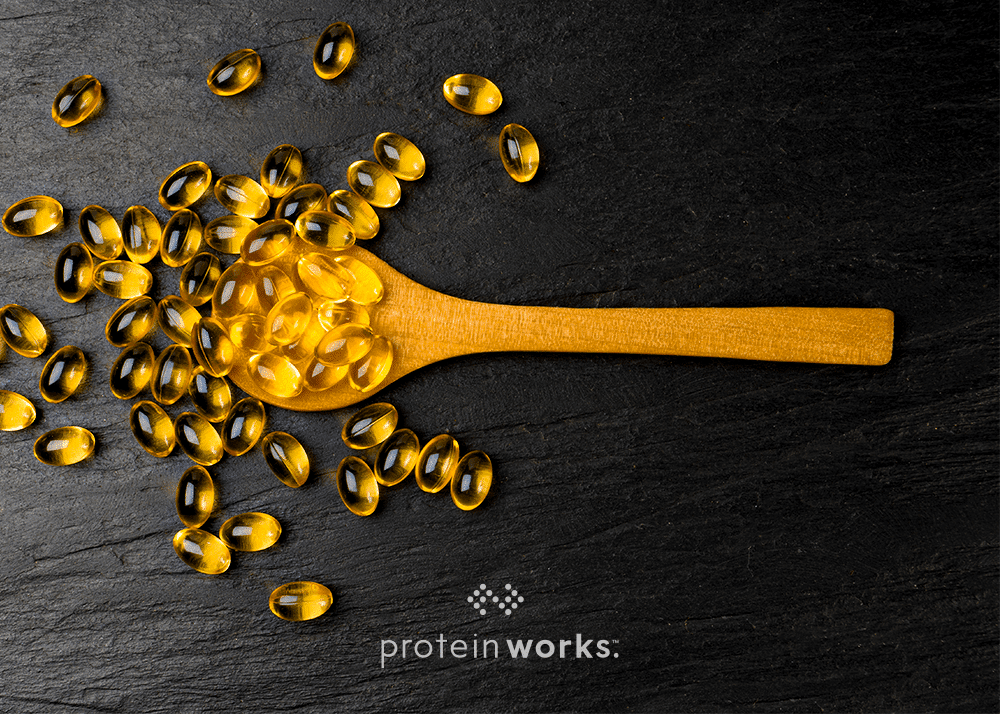
Veganuary: Why Vitamins and Supplements are Important
Veganuary, a month where many people follow a vegan diet to help nullify the effects of December, is becoming more and more popular with 2021 expected to be the biggest yet. But are vegan diets healthy? Is there any risk of deficiencies? In this article, we will take a look at some supplements you may want to consider taking alongside your new diet.
What Are the Benefits of a Vegan Diet?
The reason so many people try Veganuary is the perceived health benefits of doing so. Following a vegan diet can reduce your risk of metabolic syndrome (diabetes, high blood pressure, obesity).
A 2014 meta-analysis compiled data from numerous studies on veganism in Asian populations. It found that while results were mixed, there was a trend to vegan diets being associated with a lower risk of metabolic syndrome.
Following a vegan diet instead of a diet based around red meat may also lower your risks of certain cancers. Though it should be stated that the evidence for this is pretty mixed at the moment. A 2017 meta-analysis found that vegan diets had a 15% lower risk of cancer.
A commonly held belief is that vegan diets are likely to lead to weight loss. This is sort of true. Because many vegan foods are less calorie dense than regular foods it can be harder to hit the same calorie totals.
But this is all down to the individual. A vegan in a calorie surplus (consuming more calories than you expend per day) will still gain weight, while a meat-eater in a calorie deficit will still lose weight.
Still, making the switch from meat to vegan could well lead to a small drop in body fat, provided you did things properly. Lower body fat will mean a reduced risk of cardiovascular disease, metabolic syndrome, and a reduced risk of certain diseases and illnesses.
What Are the Downsides of a Vegan Diet?
Going vegan isn’t all good news, it can still be a challenge. For starters, the vegan diet is by definition restrictive. You are restricting your diet to foods that are not animal products. No milk or dairy, no meat, no honey, and many meals are now off limits.
Vegans will argue that this is a good thing, and ethically they are almost certainly correct. But rarely in nutrition is restricting your diet a good thing. Less food variety means less chances to avoid deficiencies (we’ll talk about this in a bit).
If you are looking to gain weight, then a vegan diet is perhaps not the best choice. Plus, there is the social side to going vegan. Which may be a frustrating topic of conversation for many vegans, but you will still find it difficult when going out to eat or going to dinner with friends and family.
It should also be noted that some people with eating disorders have found veganism can be used as an excuse to control their eating.
This quote from Laura Crotty, a dietician who works with people with eating disorders sums up the issue well:
“The primary motivation for following a vegan or vegetarian diet may be weight loss, calorie restriction or orthorexic notions of ‘healthy’ food, but this is expressed as an ethical diet preference”
What Deficiencies Can a Vegan Diet Cause?
It should be noted that very few vegans actually suffer from deficiencies. Not only is the variety of vegan foods skyrocketing, but greater understanding of nutrition and supplementation has made avoiding deficiencies a lot easier.
That being said, here are the most common deficiencies associated with a vegan diet:
- Vitamin B12
- Vitamin D
- Omega-3 Fatty Acids
- Iron
- Calcium
- Zinc
- Iodine
 Which Supplements Should You Take as a Vegan?
Which Supplements Should You Take as a Vegan?
Vitamin D supplements are a great choice for vegans, particularly during winter. Vitamin D supplementation has been shown to help fight depression, reduce the risk of infection, and can support testosterone levels in men.
Omega-3 supplementation may also be helpful, as would a ZMA supplement (zinc, magnesium, vitamin B6). A regular multivitamin would be a good idea.
Vegan protein powder would be helpful, though not to prevent deficiencies. It could just make things easier for you to boost your protein intake in a convenient and cost effective way.
Another supplement that we would recommend would be creatine monohydrate. Your body produces creatine naturally, but most people get a top up from meat (particularly beef). Vegans get almost zero creatine through diet, leaving them at a disadvantage.
Luckily, creatine monohydrate supplements are vegan-friendly, and have been shown to produce amazing results. Increased strength, power, and endurance. But also cognitive benefits such as improved memory and concentration have been associated with it.
Final Thoughts
Following a vegan diet is a great idea, provided you are doing it for sound reasons. The ethical reasons are unquestionable, the ecological reasons are also valid.
From a health point of view, a vegan diet could certainly help the majority of people in the UK, where obesity, diabetes, and heart disease affect far too many people.
While there may be some crossover between veganism and orthorexia, that is not something that is going to affect the majority of people. No more so than any other diet anyway!
Creatine, vegan protein powder, and a multivitamin should see you avoid any deficiencies and thrive under your new diet. You may even consider continuing your new diet past January. Whatever you decide, we wish you the best of luck.


 Which Supplements Should You Take as a Vegan?
Which Supplements Should You Take as a Vegan?

No Comments yet!